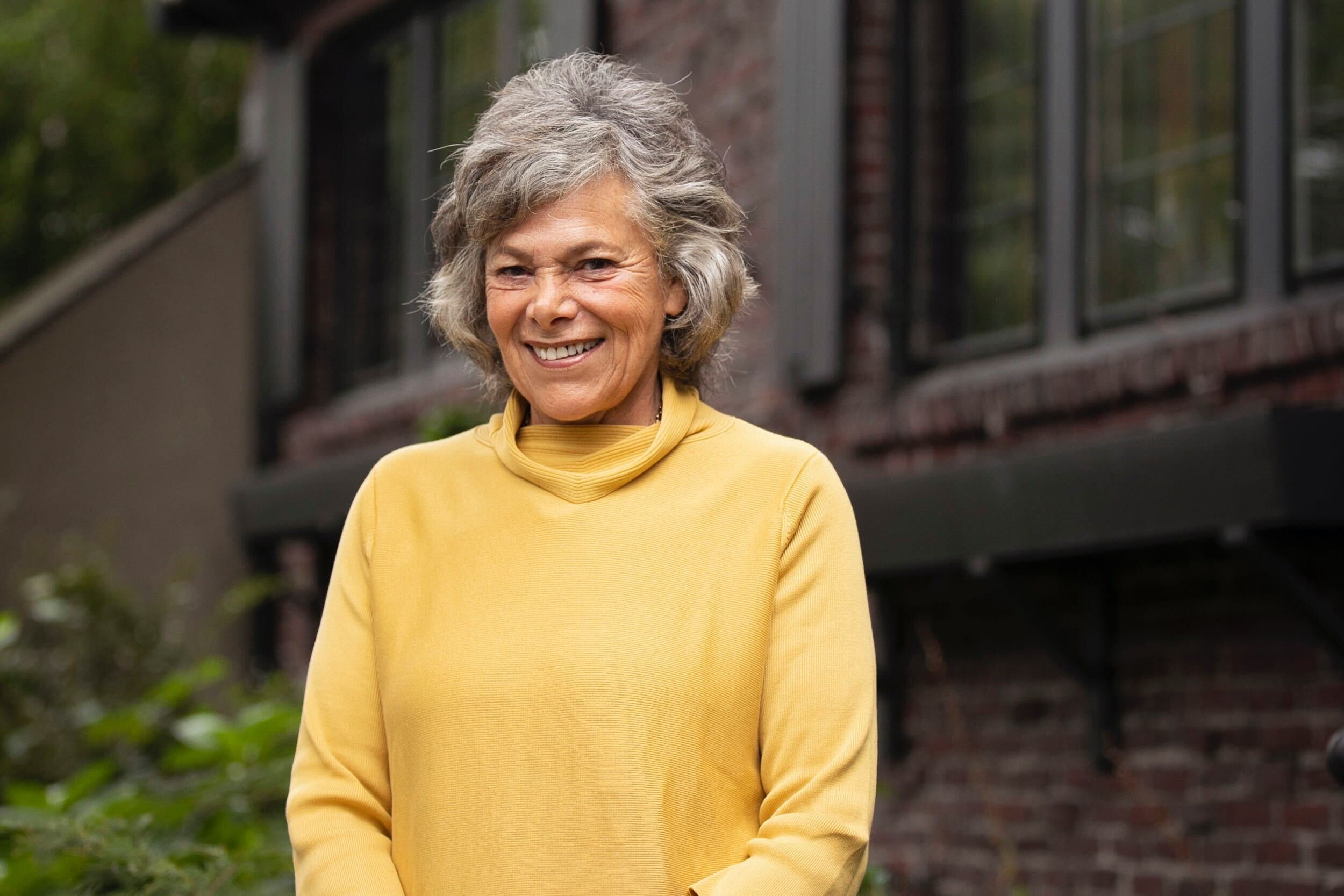
Discover the Mind with Langer’s Lab
The lab research for its groundbreaking work on mindfulness, decision-making, aging, and perception of control. With a strong emphasis on real-world impact, Langer’s Lab challenges conventional assumptions about health, learning, and behavior by investigating how subtle shifts in mindset can profoundly influence outcomes.
Key areas of research include:
Mindfulness without meditation: A novel, accessible approach to cultivating awareness by noticing new things.
Placebo effects: Understanding how belief and context can alter physiological states.
Illusion of control and choice: Examining how perceived control affects motivation and well-being.
Psychological aging: Investigating how attitudes and environments influence the aging process.
Our Research Theme
-
Consciousness
Explore the nature of awareness, perception, and self-reflection to better understand human experience and mental states.
-
Judgement and Decision making
Investigate how individuals evaluate information and make choices, enhancing strategies in fields like marketing, policy, and behavioral economics.
-
Social and Affective Neuroscience
Study how brain systems drive emotions, empathy, and social interactions to inform mental health, relationships, and group behavior.
-
Cognitive Aging
Understand how memory, attention, and reasoning change over time to support healthy aging and early intervention strategies.
-
Unconscious Processes
Examine the mental operations that occur outside of conscious awareness, influencing behavior, habits, and emotional responses.
-
Attitudes
Analyze how beliefs and evaluations are formed and changed, impacting persuasion, identity, and social behavior.
-
Health Psychology
Apply psychological principles to promote well-being, manage illness, and support behavior change in healthcare settings.
-
Moral Cognition
Examine how people understand, reason about, and make decisions concerning right and wrong, shaping ethical behavior and social norms.
Recent Publications
Mindfulness, Curiosity, and Creativity (2024)
Curiosity and creativity are manifestations of novelty-seeking mechanisms, closely intertwined and interdependent. This principle aligns seamlessly with the foundational tenets of Langerian mindfulness, which places novelty seeking as a cornerstone. Creativity, curiosity, openness, and flexibility all harmoniously converge in this framework. Spanning over four decades, research in the realm of mindfulness has diligently delved into the intricate interplay among these constructs.
SAS-1: A Single-Item Smartphone Addiction Scale (2024)
The digital age has brought increasing concern about the negative effects of smartphone use, which has led to dozens of measures of smartphone addiction. Almost all of these measures, however, may be too long for contexts such as large-scale surveys. Here, we introduce a single-item measure that probes agreement with the statement: ‘I am addicted to my smartphone’. Across 10,786 participants aged 5 to 89 from 149 countries, 37% agreed or strongly agreed with this statement.
Mindfulness Disposition as a Protective Factor Against Stress in Antarctica: A Potential Countermeasure for Long-Duration Spaceflight? (2024)
Long-duration missions in isolated, confined, and extreme environments, including Antarctica and upcoming deep-space operations, can be a source of increased stress. The identification of countermeasures and protective factors is required to support health and performance in similar contexts. Mindfulness disposition is an optimal candidate, but no research has ever explored this potential association.
Sex, Age, and Smartphone Addiction Across 41 Countries (2023)
Most studies of problematic smartphone use focus on younger participants in a single country, which makes global comparisons difficult. Here, we administered the Smartphone Addiction Scale (Short Version) to 50,423 participants aged 18 to 90 from 195 countries and subdivisions. The results showed that women scored 3.22 units higher than men, each year of age predicted a decrease of 0.18 units, and global scores increased by 0.66 units per year.
Exploring the Clinical Utility of Choice Blindness: Generalization of Effects and Necessity of Deception (2023)
Choice blindness (CB)—failing to detect that one’s selected choice has been replaced by an alternative—can change attitudes with little resistance. To explore its clinical utility, we tested whether CB could reduce negative beliefs about experiential avoidance and whether these effects generalized to improve well-being (depression and life satisfaction). We also tested whether deception is necessary for these changes. In this preregistered study, 145 students completed baseline questionnaires and then explained their answers to three experiential avoidance items.
The Fatigue Illusion: The Physical Effects of Mindlessness (2022)
Choice blindness (CB)—failing to detect that one’s selected choice has been replaced by an alternative—can change attitudes with little resistance. To explore its clinical utility, we tested whether CB could reduce negative beliefs about experiential avoidance and whether these effects generalized to improve well-being (depression and life satisfaction). We also tested whether deception is necessary for these changes. In this preregistered study, 145 students completed baseline questionnaires and then explained their answers to three experiential avoidance items.
Student-Led Research
From Summer 2024 to Spring 2025, a group of selected high school students engaged in an immersive journey to explore mindfulness in the respective areas of biomedical engineering, neuroscience, sports management, and finance and economics. Under the guidance of Dr. Ellen Langer, they grounded themselves in the theory of mindfulness, then led original research projects as collaborative teams. They engaged in hands-on data collection and data analysis activities, giving them opportunities to understand the inquiry process in science and contribute to valuable new knowledge in the growing area of mindful research. This unique opportunity reflects Dr. Langer’s enduring commitment to nurturing young minds and advancing the global conversation on mindfulness.
Abstract
This research examines the role of induced mindfulness in consumer satisfaction and emotional stability related to financial decisions. Prompted by the increasing bankruptcy rates and impulsive financial behaviors in South Korea, the experiment aimed to determine whether a brief mindfulness intervention could support better judgment and reduce stress during consumer choices. Participants were randomly assigned into either a mindfulness or control group and completed a simulated shopping task. Mindfulness was induced using a brief cognitive exercise designed to increase awareness and reduce automaticity…..
Survey Platform: Mood and Money
Abstract
This study investigated the effects of an induced state of mindfulness, as defined by Ellen Langer, on participants’ neuro cognitive performance. Langerian mindfulness emphasizes creative awareness and openness to novel observations in one’s immediate context. To assess baseline and post-study mindfulness levels, participants completed the Langer Mindfulness Scale (LMS), a validated self-report measure. Cognitive performance was evaluated through three online tasks designed to measure three-dimensional visualization, reaction time, and short-term memory span…..
Survey Platform: Mind Over Game
Abstract
This study investigated the effects of induced mindfulness on task performance in a sports-related context. A mobile application and custom-built website were developed to administer two AR-based game tasks, designed to evaluate performance in sport-relevant functions. Participants were randomly assigned to either a mindfulness group, which received a brief mindfulness-inducing intervention, or a control group that completed a comparable but non-mindful activity. Performance scores from both groups were compared to examine whether mindfulness contributed to improved outcomes.….
Survey Platform: Sports and the mind
Abstract
This study investigates the role of mindfulness in enhancing an individual's concentration and performance during a rehabilitation exercise. Drawing on Ellen Langer’s definition of “mindfulness,” a state characterized by activeness, openness to novelty, and context sensitivity, the study examined how mindfulness affects task engagement and execution. A total of 80 participants completed pre- and post-task psychological surveys; the main task involved a 20-minute guided rehabilitation exercise. The findings revealed a significant correlation between mindfulness and the level of performance on exercises…..
Survey Platform: Mind and motion
Contact for Collaboration
Interested in partnering with us? Reach out to explore meaningful collaboration opportunities that advance innovation and impact.
